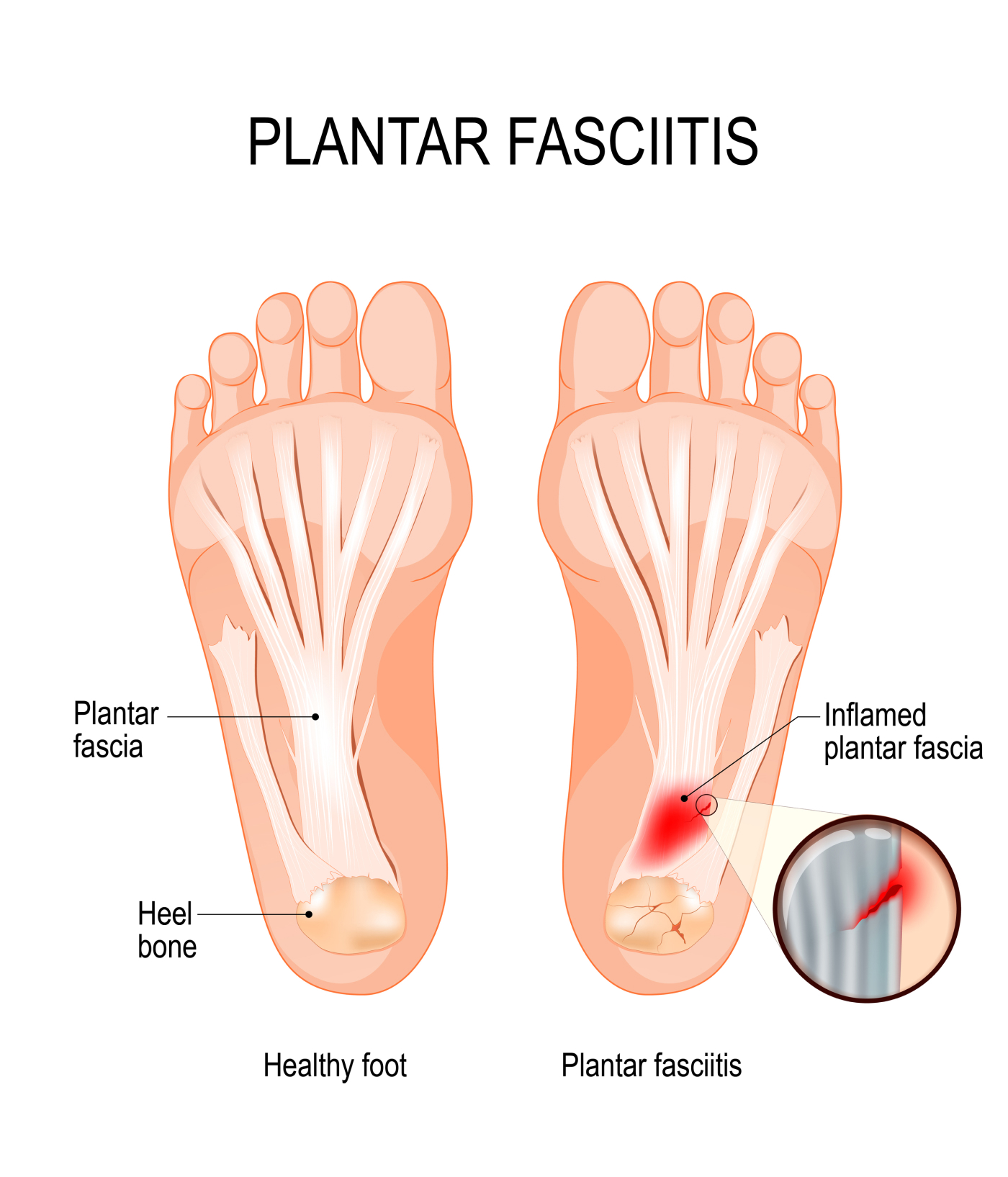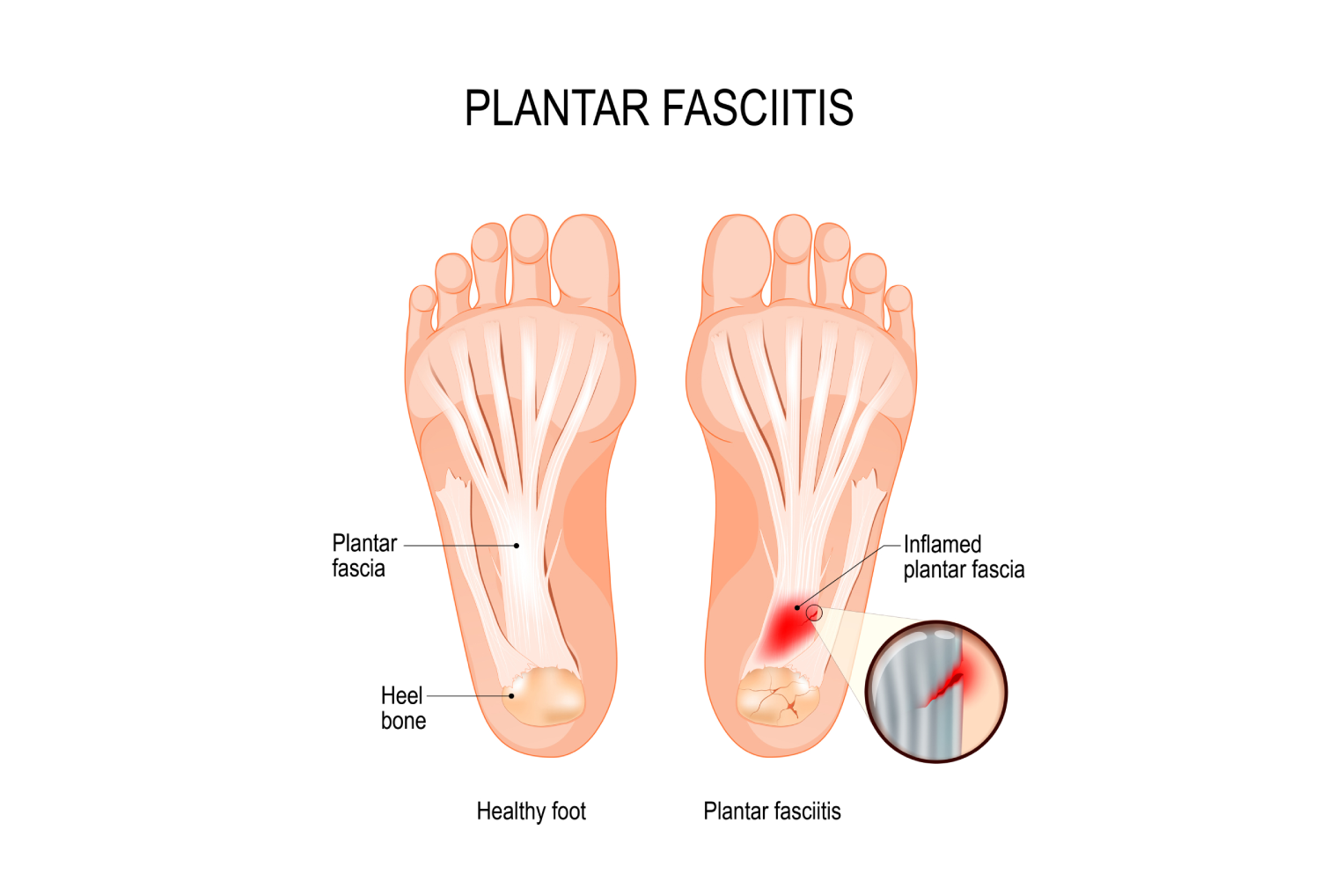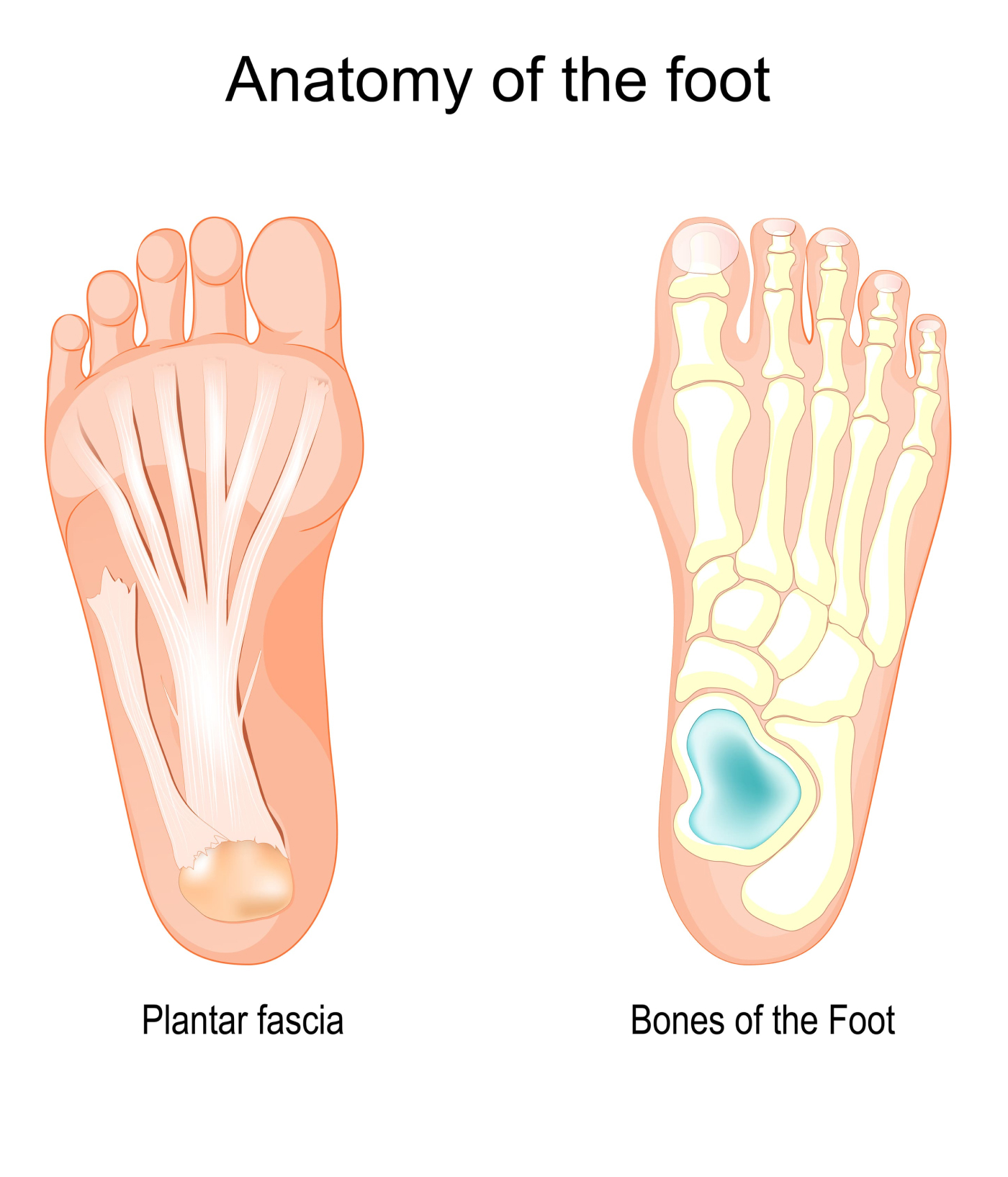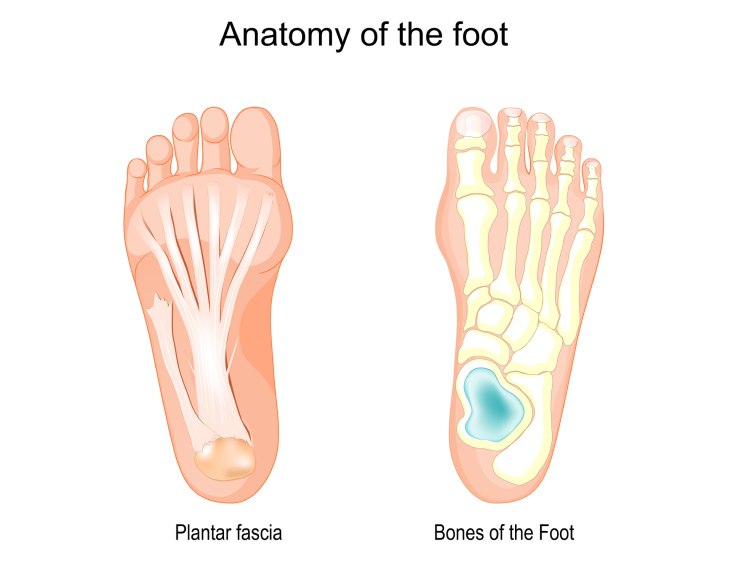Plantar Fasciitis Specialist In Singapore

Dr Wang Lushun
Senior Consultant Orthopaedic Surgeon
MBBS (Singapore)
MRCS (Edin)
MMed (Ortho)
FRCS (Ortho) (Edin)
- Get active again by treating your plantar fasciitis
- Fellowship-trained orthopedic surgeon
- Internationally recognised, more than 1500 surgeries performed



What is Plantar Fasciitis?
The plantar fascia is a thick band of fibrous connective tissue that runs along the bottom of the foot, connecting the heel bone to the toes. It functions as a shock absorber, supporting the arch of the foot during daily activities such as walking, running, and standing.
Plantar Fasciitis is a condition characterized by inflammation, microtears, or degeneration of the plantar fascia, leading to pain and discomfort in the heel and arch of the foot. The inflammation is typically caused by repetitive stress or overuse, often affecting athletes, individuals with specific foot biomechanics, and those who spend long hours on their feet.
Symptoms of Plantar Fasciitis
The severity and progression of these symptoms may vary between individuals, with some experiencing mild discomfort while others encounter debilitating pain.
Heel pain
A sharp, stabbing pain at the base of the heel is the hallmark symptom of Plantar Fasciitis.
Morning stiffness
Many individuals experience stiffness and pain in the foot upon waking, which usually improves with movement.
Pain upon weight-bearing
Discomfort may increase when standing for long periods, climbing stairs, or engaging in physical activity.
Tenderness on the bottom of the foot
The plantar fascia may be tender to the touch, especially near the heel.
Get an accurate diagnosis and customized treatment plan
for your plantar fasciitis
for your plantar fasciitis
Treat your plantar fasciitis while reducing the risk of further damage or injury to your feet.
What causes plantar fasciitis?
There are several factors that can contribute to the development of plantar fasciitis. These include:
Foot structure
Individuals with flat feet, high arches, or an abnormal walking pattern may be more prone to developing plantar fasciitis due to the increased stress placed on the plantar fascia.
Age
The risk of developing plantar fasciitis increases with age, as the plantar fascia becomes less elastic and more prone to injury.
Weight
Carrying excess body weight can place additional stress on the plantar fascia, increasing the risk of inflammation and pain.
Footwear
Wearing shoes with poor arch support or cushioning can contribute to the development of plantar fasciitis, as they can place increased stress on the plantar fascia.
Overuse
Engaging in activities that place excessive stress on the plantar fascia, such as long-distance running or jumping, can lead to inflammation and pain. This is particularly true for individuals who suddenly increase the intensity or duration of their activities without allowing their body to adjust gradually.


The anatomy of the foot and plantar fascia
The foot is a complex structure made up of 26 bones, 33 joints, and over 100 muscles, tendons, and ligaments. The plantar fascia is a thick, fibrous band of tissue that runs along the bottom of the foot, from the heel bone to the base of the toes. It provides support to the arch of the foot and helps to maintain its structure.
The plantar fascia is designed to absorb and distribute the forces generated during walking and running. However, when the tissue is subjected to excessive stress, it can become inflamed, leading to the development of plantar fasciitis.
Non-surgical plantar fasciitis treatments
There are several non-surgical treatment options available to help alleviate the pain and discomfort associated with plantar fasciitis. These include:
- Rest and ice: Reducing activity levels and applying ice to the affected area can help to reduce inflammation and relieve pain.
- Stretching exercises: Stretching the plantar fascia, calf muscles, and Achilles tendon can help to alleviate tension and improve flexibility.
- Orthotics: Custom-made orthotics or over-the-counter shoe inserts can help to provide additional arch support and cushioning, reducing stress on the plantar fascia.
- Physical therapy: A physiotherapist can provide targeted exercises and treatments to help improve your foot’s strength and flexibility, reducing the symptoms of plantar fasciitis.
- Medication: Over-the-counter pain relievers and anti-inflammatory medications can help to alleviate pain and inflammation.
When to consider plantar fasciitis surgery
In some cases, conservative treatments may not be effective in relieving the symptoms of plantar fasciitis. In these instances, your healthcare professional may recommend surgical intervention. Plantar fasciitis surgery typically involves releasing a portion of the plantar fascia to reduce tension and alleviate pain. However, surgery should always be considered a last resort, as it carries risks and is not always guaranteed to provide relief.
Preventing plantar fasciitis
There are several steps you can take to help prevent the development of plantar fasciitis, including:
Wearing supportive footwear
Choose shoes with adequate arch support and cushioning to help distribute pressure evenly across your foot.
Maintaining a healthy weight
Excess body weight can place additional stress on the plantar fascia, increasing the risk of inflammation and pain.
Gradually increasing activity levels
If you are starting a new exercise program or increasing the intensity of your current routine, do so gradually to allow your body time to adjust and adapt.
Stretching regularly
Incorporating daily stretching exercises for your feet, calves, and Achilles tendon can help to improve flexibility and reduce the risk of injury.
Conclusion and maintaining foot health
Plantar fasciitis can be a painful and debilitating condition, but with proper care and treatment, it's possible to alleviate symptoms and prevent its recurrence. By understanding the causes and symptoms, and seeking appropriate treatment, you can take steps to maintain your foot health and minimize the impact of plantar fasciitis on your daily life.


Dr Wang Lushun
Senior Consultant Orthopaedic Surgeon
MBBS (Singapore)
MRCS (Edin)
MMed (Ortho)
FRCS (Ortho) (Edin)
Internationally Recognised & Double Fellowship-Trained Surgeon With Over 18 Years of Experience
- Bachelor of Medicine & Bachelor of Surgery (MBBS),
National University of Singapore - Member of The Royal College of Surgeons (MRCS),
Edinburgh, United Kingdom - Master of Medicine in Orthopaedic Surgery (MMed),
National University of Singapore - Fellow of The Royal College of Surgeons in Orthopaedics and Traumatology (FRCS), Edinburgh, United Kingdom
As a Senior Consultant Orthopaedic Surgeon and former Head of the Hip and Knee Division in Ng Teng Fong Hospital, he has won awards for superior patient outcomes (value driven), service quality and enhanced recovery programmes. His patients include current and former national athletes and sporting professionals.
Why Choose
Dr Wang Lushun?
Trusted
Leadership on Orthopaedic Advisory Boards
Skilful
Double Fellowships at Centres of Excellence
Experienced
Senior Consultant with Over 18 Years of Experience
Patient-Centred Orthopaedic Care
We are dedicated to your recovery and well-being. Every patient deserves the freedom that comes with active living. Whether you're an athlete sidelined by an injury or a weekend hobbyist desperate to return to your passion, our mission is to help you regain your mobility and independence.
Personalised Approach For Positive Outcomes
Our clinic prioritizes time dedicated to understanding each patient’s injuries and needs. Dr Wang strongly believes that personalised care & patient management will lead to better outcomes & positive experiences.
Minimally Invasive Techniques For Faster Recovery
Dr Wang’s extensive experience with minimally invasive procedures allows for less scarring, lower risk of complications and faster recovery compared to traditional surgical methods.
Aftercare Focused On Restoring Mobility & Well-Being
As an avid sportsperson, Dr Wang understands the time and patience required to regain mobility and return to active living. After your procedure is completed, Dr Wang will make sure your recovery is smooth and comfortable.
Insurance
We accept all patients, with or without insurance plans. Additionally, we are on the specialist panels of these Health Networks/Insurance Plans. Please contact us if you have any queries and we will be happy to assist you in checking with your insurance provider.